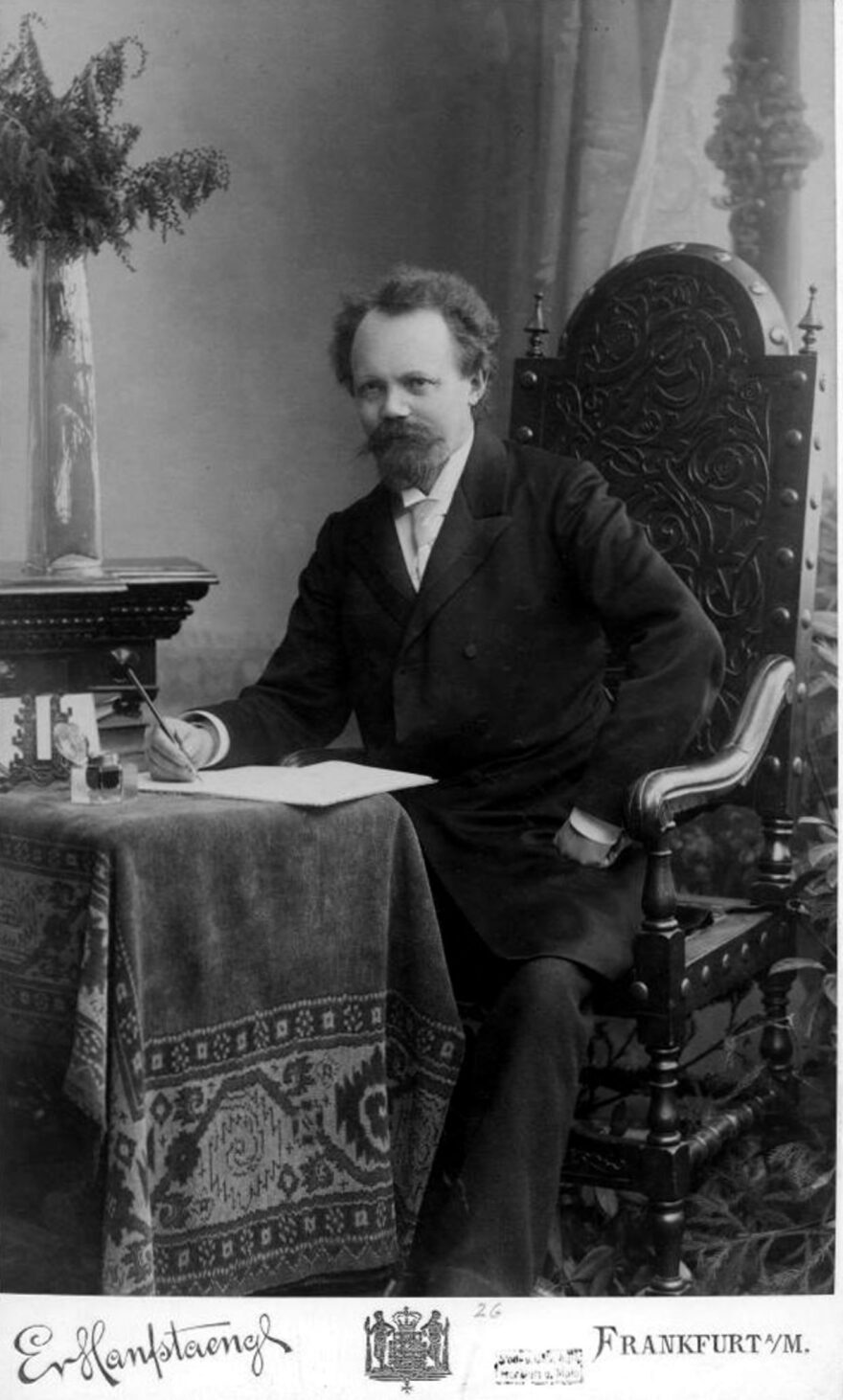Before we get to the matter at hand — why this opera is among our recommendations for your December listening traditions — let’s get one thing out of the way: With its combination of angular consonants and bobbled “oo’s” and “ee’s”, the composer of this work has one of the most satisfying, unforgettable names to say.
En-gel-bert Hump-er-dinck. (Who can blame mid-20th century crooner Arnold Dorsey for adopting the pseudonym to get noticed?)
The humor and joy of saying his name addressed, here is the real Humperdinck: the brilliantly mustachioed and brilliantly capable German composer, born in 1854.

A Brief History
Humperdinck is best known for his opera Hänsel und Gretel, and performances of it have been associated with Christmas time since its premier in 1893.
Now, of all the great works associated with the holidays — Tchaikovsky’s The Nutcracker, Handel’s Messiah, and so on — an opera about a witch who lures children to her lair in the woods with an irresistible, magic, candy house might not initially seem like it fits “the holiday” spirit.
So why have performances of the opera been a holiday tradition since the 19th century?
MEET ADELHEID WETTE, LIBRETTIST (AND SISTER)
It was nearly Christmas in 1891 and Humperdinck’s sister, Adelheid Wette, approached her composer brother to help her with a gift for her children.
She had written lyrics based on the famed Brothers Grimm fairy tale, “Hansel and Gretel,” and hoped he’d set them to music.
The little set of songs he wrote was a big hit with his nieces, and afterward, Adelheid encouraged her brother to take the project to the next step: with her as librettist, why not write a fairy-tale opera based on it?
DECEMBER 1893: PREMIERE, SUCCESS!

Humperdinck, an assistant to Richard Wagner, completed the music in 1893. The opera premiered just days before Christmas that same year (with none other than Richard Strauss conducting). The audience at the premiere in Munich loved it.
The next year, it received its London premier on Boxing Day, with seasonal performances following close behind in the United States and around the world.
And ever since, the tale of two duped children lost in the woods that outsmarted the wicked witch and her magic candy house has been a can’t miss performance for the season.
Listen
My favorite part is the aria toward the end of Act 2 — where the Sandman visits the children. Before they drift off to sleep, Hansel and Gretel sing a beautiful duet, praying that angels will watch over them.
And, as it happens, they do.
Listen to this duet from a 2007 production of Hansel und Gretel at the Metropolitan Opera:



